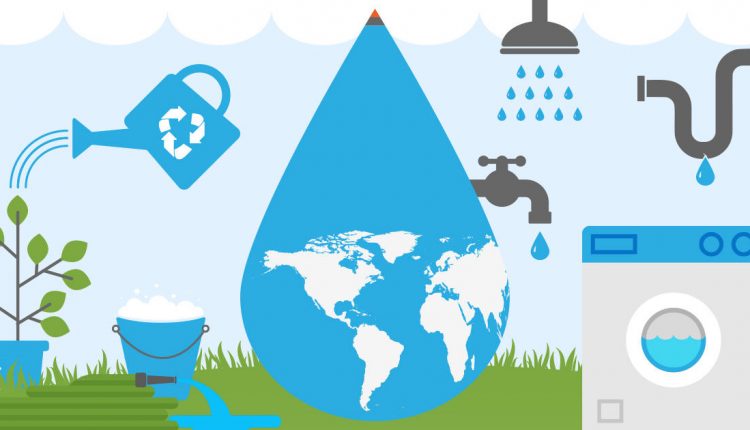Save water save Money
Saving Money While save Water: Smart Strategies for Sustainable Living
Save water not only benefits the environment but can also lead to significant savings on your water bill. By adopting water-saving practices, you contribute to a sustainable future while putting some extra cash back in your pocket. Here are practical tips on how to save money while conserving water:
1. Fix Leaks Promptly:
- Save Water, Save Money: A leaky faucet or a running toilet can waste a surprising amount of water and inflate your water bill. Fix leaks as soon as you notice them to prevent unnecessary expenses.
2. Install Water-Efficient Appliances:
- Save Water, Save Money: Upgrading to water-efficient appliances, such as low-flow toilets and high-efficiency washing machines, can significantly reduce water consumption. Many utility companies offer rebates for installing water-saving devices, providing upfront cost savings.
3. Collect Rainwater:
- Save Water, Save Money: Use rain barrels to collect rainwater, which can be used for watering plants and outdoor cleaning. This reduces your reliance on treated water for tasks that don’t require it, leading to lower water bills.
4. Be Mindful of Lawn Watering:
- Save Water, Save Money: Overwatering lawns can be both wasteful and expensive. Water your lawn during the early morning or late evening to minimize evaporation, and adjust sprinklers to target the grass rather than paved surfaces.
5. Shorten Shower Time:
- Save Water, Save Money: Reducing your shower time not only conserves water but also cuts down on water heating costs. Consider installing a low-flow showerhead to maintain water pressure while reducing overall water usage.
6. Collect and Reuse Greywater:
- Save Water, Save Money: Greywater, collected from activities like washing dishes, can be repurposed for tasks that don’t require potable water. This reduces your reliance on treated water and lowers your water bill.
7. Turn Off Taps:
- Save Water, Save Money: Turning off taps while brushing teeth, washing hands, or scrubbing dishes is a simple habit that can lead to noticeable water savings and, consequently, reduced water bills.
8. Run Full Loads:
- Save Water, Save Money: Wait until you have a full load before running your dishwasher or washing machine. Running full loads maximizes the efficiency of these appliances and reduces water and energy consumption per item.
9. Educate and Advocate:
- Save Water, Save Money: Raise awareness in your community about the importance of water conservation. Encourage your neighbors to adopt water-saving practices, which can have a collective impact on reducing overall water demand and associated costs.
10. Monitor Your Water Usage:
- Save Water, Save Money: Keep a close eye on your water bills and usage patterns. By staying informed, you can identify potential leaks or changes in consumption and take corrective actions before costs escalate.
Save Water: A Vital Responsibility for a Sustainable Future
Water is a precious resource essential for life, yet its availability is increasingly threatened by factors such as climate change, population growth, and environmental degradation. As responsible global citizens, it is our duty to adopt water-saving practices to ensure a sustainable future for generations to come. This article explores the importance of water conservation and provides practical tips for individuals and communities to save water.
The Urgency of Water Conservation:
Water scarcity is a pressing global issue that demands immediate attention. The consequences of inadequate water availability include:
- Impact on Ecosystems: Insufficient water resources can harm aquatic ecosystems, leading to the decline of biodiversity and the disruption of natural habitats.
- Threat to Agriculture: Agriculture, a major water consumer, faces challenges when water supplies are insufficient, impacting crop yields and food production.
- Human Health: Inadequate access to clean water jeopardizes public health, leading to waterborne diseases and hygiene-related issues.
- Rising Demand: As the global population increases, the demand for water intensifies, making conservation efforts crucial to meet the needs of present and future generations.
The Collective Impact of Individual Actions:
While individual efforts may seem small, the collective impact of widespread water-saving practices is substantial. By adopting water conservation habits, individuals contribute to:
- Preserving Ecosystems: Reduced water consumption minimizes the stress on natural ecosystems, safeguarding aquatic environments and biodiversity.
- Ensuring Agricultural Sustainability: Responsible water use supports sustainable agriculture, ensuring food security for communities around the world.
- Mitigating Water Scarcity: Every drop saved counts toward mitigating the global water crisis, promoting equity in water distribution and availability.
Conclusion:
Water conservation is not merely a choice but a responsibility that individuals, communities, and nations must embrace. By integrating water-saving practices into our daily lives, we contribute to a sustainable and resilient future. Let us recognize the value of water, use it wisely, and collectively work towards securing this essential resource for generations to come.

